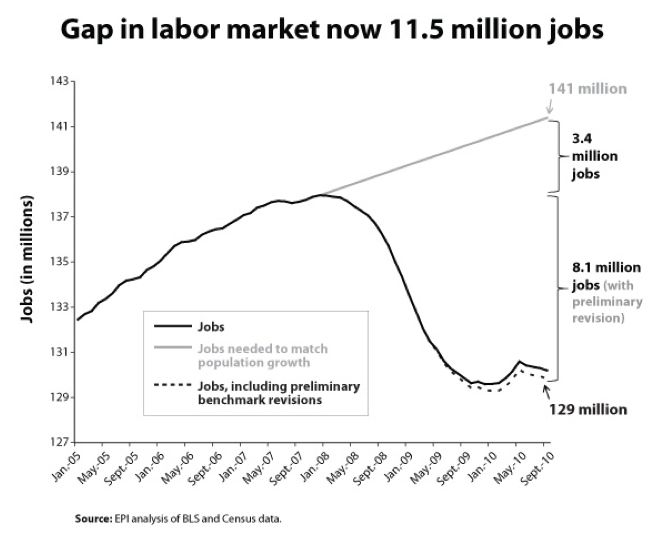One sign of the devolution is that nowadays, it is becoming increasingly obvious that legislation can be passed when it is known full well that the government finances can not afford it, and/or when it is known that a substantial number of people will not be able to comply with the requirements.
Look for example at one of the specific certain failures of the fake health reform that has been proposed. It has been a fact of life for decades that low income people in high cost areas drive vehicles without auto insurance, which is against the law, but they get away with it, provided that they don't have any accidents and that they are not pulled over by the police.
If the health insurance "mandate" passes and there is no substantial reduction of the cost of premiums, which is exactly the most likely future as we speak, then clearly, the same kind of thing will happen with "required" health insurance. There will be millions who can not buy it, regardless of any subsidy levels that are realistically plausible. There will be millions more who can technically afford it, but who will hold on to their money for fear of homelessness due to unemployment that is already in excess of 20% and is rising.
Subsidies will definitely not be adequate given the massive unemployment threat, and subsidies will certainly not be adequate in the high cost of living areas for lower income people.
For most people, health insurance is many multiples of what auto insurance costs. The auto insurance market, although far from perfectly "free market" is more competitive than is the health insurance market.
Interestingly, whereas uninsured drivers have been strongly associated with minority and immigrant populations, individuals with no health insurance will racially at least constitute a much more representative, average sample of the population.
Up until recently, US laws were designed so that only the very poorest would not be able to comply, which frequently has meant that mostly minorities would not be able to comply. But the proposed “health insurance reform” threatens to introduce a new, much larger, more reckless scale of lawmaking malpractice. A much larger percentage of the population will not be in a position to comply with the current proposals as compared with prior laws.
Notably, many more relatively poor white people (who are not as prevalent in the lowest income categories) will now be just as subject to involuntary noncompliance as poor minorities have been in the past. You could say that poor white people are now becoming ghettoized. Of course, there are many other reasons besides being "forced" to buy something unaffordable that are involved in the ghettoization.
Increasing and/or large scale ghettoization of the population is one of the most reliable indicators of the existence of a third world type of economy and society.
A RESPONSE:
Egalitare August 27th, 2009 6:05 am
Is there a point where the rest of the Private Sector digs their collective heels in and decides that the "Medical Industrial Complex" is capturing far too much of their share of the pie.
It would appear the answer is NO.
The rest of the Chamber of Commerce seemed indifferent to the Big Three's demise, in no small part due to the weight of increasing health care costs. How many other economic sectors will need to bite the dust before the Chamber realize that Big Health Insurance, while they can create a great deal of profit, really doesn't create leverage to spur real growth in other sectors of the economy?
The Chamber of Commerce types appear to be dumber than rocks, but of course they may be suffering from an image problem due to having only bad propaganda at their disposal, laugh out loud.
Seriously, the US private sector will apparently never rebel against the health industry taking everything and causing further and further collapse of the former US middle class, which is strong evidence for the theory that "national private sectors" as independent entities don't really exist anymore in a world economy dominated by massive multi-national corporations.
But won't the US national private sector spring back into existence if the world economy in general and world trade in particular collapses substantially? Or when China can no longer make a profit by dumping cheap goods in America? I would assume so.
But of course by that point the US private sector (creator of zero jobs in the last ten years and counting) will be devastated even worse than now.






No comments:
Post a Comment